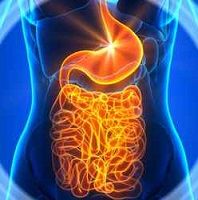Article
Guts of Fecal Transplant Patients Resemble their Donors'
Author(s):
“Our results suggest that intestinal microbiota can be modified relatively permanently,†researcher Reetta Satokari explained.

One year following Clostridium difficile (C. difficile) infection, the gut microbiome of the patients who received fecal microbiota transplant mirrored their donors’ gut flora, according to findings published in BMC Medicine.
Researchers from the University of Helsinki studied 14 C. difficile patients in order to determine how long the effects of a fecal microbiota transplant would last. The infected patients did not respond to antibiotic treatment and had to undergo the transplant, where the researchers then wanted to assess the effects of and determine which specific bacteria were the mechanisms behind the efficacy. The follow up period was one year, and the fecal matter was gathered from 23 samples from three universal donors from the same time period.
The fecal microbiota transplant was a success in each of the patients, the researchers wrote. The gut flora in the transplant patients became dominated by Clostridium clusters IV and XIVa, which the study authors explained are the major anaerobic bacterial groups in a healthy gut environment. Following the transplant, the patients’ microbiota profiles were more similar to their donors’ profiles than the similarities typically observed between unrelated subjects. The investigators also observed this throughout the one year follow up, calling it a “striking similarity.”
“Our results suggest that intestinal microbiota can be modified relatively permanently,” researcher Reetta Satokari explained in a press release. “This opens new possibilities to the use this treatment for other diseases related to microbial dysbiosis.”
Additionally, by using universal donors, the investigators were able to identify bacteria commonly seen in all C. difficile infected patients. This demonstrated a commonly acquired core microbiota consisting of 24 bacteria family classifications, they said.
The researchers added in their press release that fecal microbiota transfer donors should be selected carefully: these donors should be in good general health, of normal weight, and not have any antibiotics for the prior six months. They should also be tested to exclude any of a number of diseases.
Related Coverage:
Researchers Enlist Cattle Dewormers in Fight Against C. difficile Infections
Fecal Microbiota Transplant has Ancient Roots
Researchers Work to Develop a Nonantibiotic Treatment for Clostridium difficile





